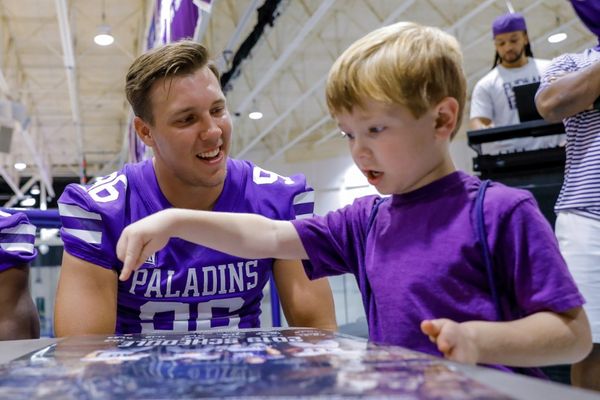Across the nation, Greek organizations are portrayed in an increasingly negative light. They have been accused of various issues, including hazing, drunk driving, and, most recently, racism and bigotry. Greek organizations are also major contributors to the spread of COVID-19 on college campuses. Furman University has seen its own developments: The Kappa Alpha Order has been suspended, fraternity houses have been banned, and administrative support for Greek organizations has decreased. With all of these perceptions about Greek Life, why would anyone, let alone a student-athlete, join a sorority or a fraternity?
In athletics, teams and players are trained to prevent “energy vampires,” like negative emotions, that seep into their minds. Negativity seems to stick and “too often,” said former President George W. Bush, “we judge other groups by their worst examples – while judging ourselves by our best intentions. This has strained our bonds of understanding and common purpose.” Student-athletes learn skills to focus on positives, build upon them, and grow stronger together. Engaging in conversation with student-athletes who are invested in Greek organizations on campus reveals many of the positive aspects of fraternities or sororities which are often overlooked or ignored by outsiders.
When you join Greek Life, you are initiated into a family that provides opportunities to network and make life-long friends. Student-athletes spend more than twenty hours each week with their team, and as such, it can be difficult to make friends outside of their sport. Since practices and games often overlap with Cultural Life Programs and other Furman events, as well as social events and personal free time, Greek Life gives athletes a chance to foster relationships outside of the team. As Furman golfer Phil Jones put it, “Greek Life and SAE have been filled with amazing experiences and provided many opportunities to meet people outside of the golf team and make friends.” Women’s soccer team member and Kappa Delta member, Mary Grace Farr, had similar remarks saying, “If I had just chosen to play soccer, I would not have branched out and met as many people as I know now. Furman Greek Life has allowed me to come out of my comfort zone and make some of my closest friends with girls I probably wouldn’t have met otherwise!”
Greek organizations also provide a robust support system for students, and particularly athletes. Life is filled with ups and downs, especially for an athlete. Each play, stroke, swing, dig, shot, kick, win, and loss are recorded for the world to see. With all the ups and downs accompanying this rollercoaster ride, it is important athletes find strong supportive groups. Former women’s golfer and Kappa Delta member, Marra Burton, said “The profound support system that is developed in Greek Life is unparalleled and I would do it all the same if I had the chance! As a graduate, I encourage all athletes to join a Greek organization if they are able to because it is an incredibly enriching experience.”
Not seen in the news, or on social media, are the countless hours fraternities, sororities, and student-athletes spend visiting hospitals, raising money for cancer research, building homes, and so much more. “I am extremely grateful to play on the Tennis team and to be in Kappa Delta at Furman,” Madison Dillon noted, “Being a part of Greek Life has expanded my involvement with different people around campus, as well as educated me about different community service opportunities in the Greenville area.” Many student-athletes, like Dillon, are attracted to the philanthropic aspect of Greek Life and continue to strive for better communities.
Furman University is truly a special place. There are not many colleges and universities that have as large of a proportion of student athletes involved in Greek organizations as Furman. It is easy to paint fraternities and sororities in a negative light. However, it is important to see how the good in fraternities and sororities can shine through and continue to attract student-athletes.
